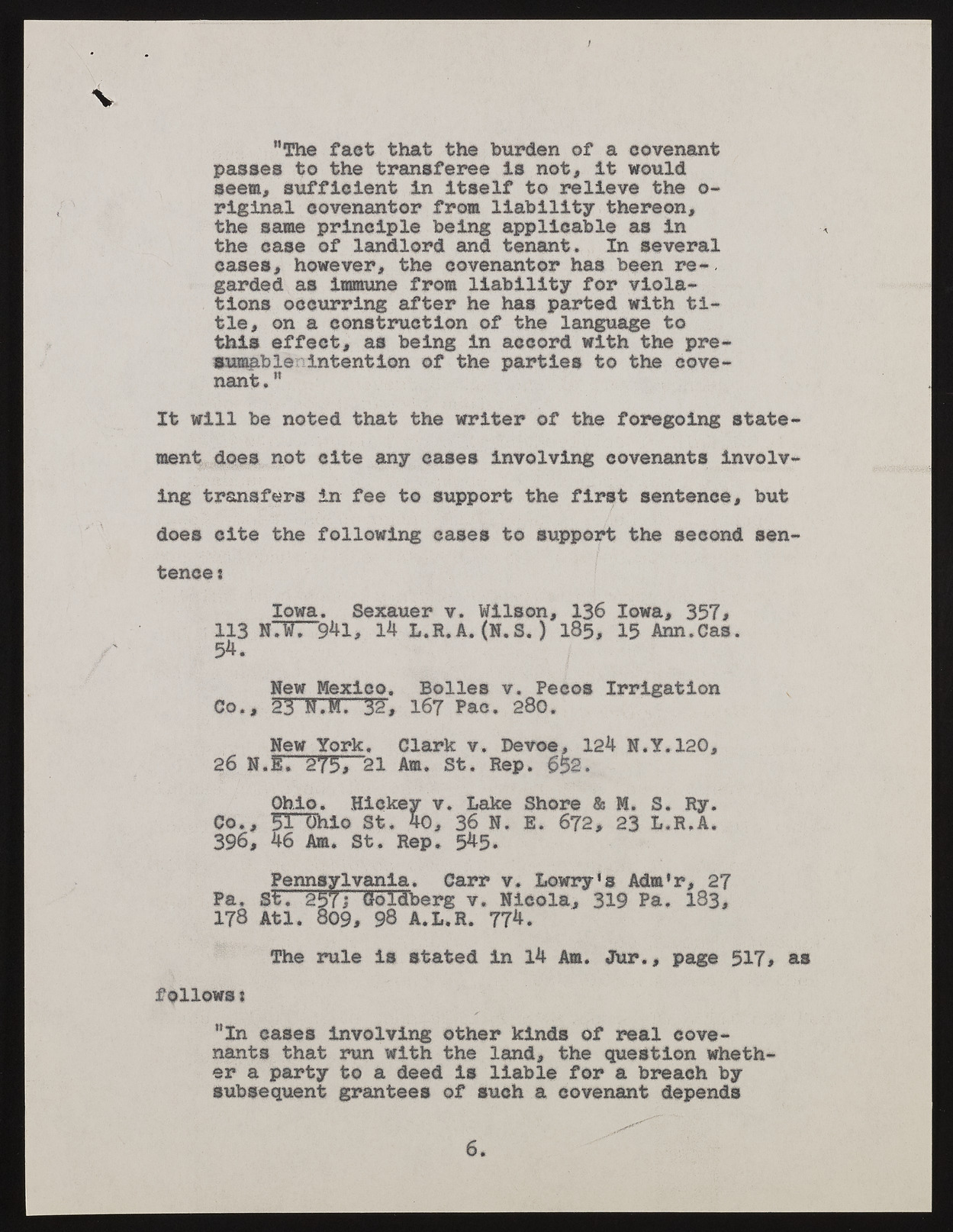Copyright & Fair-use Agreement
UNLV Special Collections provides copies of materials to facilitate private study, scholarship, or research. Material not in the public domain may be used according to fair use of copyrighted materials as defined by copyright law. Please cite us.
Please note that UNLV may not own the copyright to these materials and cannot provide permission to publish or distribute materials when UNLV is not the copyright holder. The user is solely responsible for determining the copyright status of materials and obtaining permission to use material from the copyright holder and for determining whether any permissions relating to any other rights are necessary for the intended use, and for obtaining all required permissions beyond that allowed by fair use.
Read more about our reproduction and use policy.
I agree.Information
Digital ID
Permalink
Details
More Info
Rights
Digital Provenance
Publisher
Transcription
f H "The fast that the burden of a covenant passes to the transferee Is not, It would seem, sufficient in itself to relieve the o- riginal covenantor from liability thereon, the same principle being applicable as in £ the ease of landlord and tenant. In several eases, however, the covenantor has been re-- garded as immune from liability for violations occurring after he has parted with title, on a construction of the language to this effect, as being in accord with the pre- sumablerintentlon of the parties to the covenant ," It will be noted that the writer of the foregoing statement does not cite any cases Involving covenants involving transfers in fee to support the first sentence, but does cite the following cases to support the second sentence : Iowa. Sexauer v. Wilson, 136 Iowa, 357, 113 H7W7~94l, 14 B.R.A. (N.S.) 185, 15 Ann.Cas. 54* New Mexico. Bolles v. Pecos Irrigation Co., 5JTT.II..32, 167 Pac. 280. New York, Clark v, Devoe, 124 N.Y.120, 26 H.8TS757.21 Am. St. Rep. 852. Ohio. Hickey v. Bake Shore & M. S. Ry. Co., STUhlo St. 40, 36 N. E. 672, 23 L.R.A. 396, 46 Am. St. Rep, 545. Pennsylvania, Carr v. Lowry’s Adm’r* 27 Pa, St..257; Goldberg v. Nicola, 319 Pa. 183, 178 Atl. 809, 98 A.L.R. 774. The rule Is stated in 14 Am. Jur., page 517, as follows1 "In cases involving other kinds of real covenants that run with the land, the question whether a party to a deed Is liable for a breach by subsequent grantees of such a covenant depends 6

